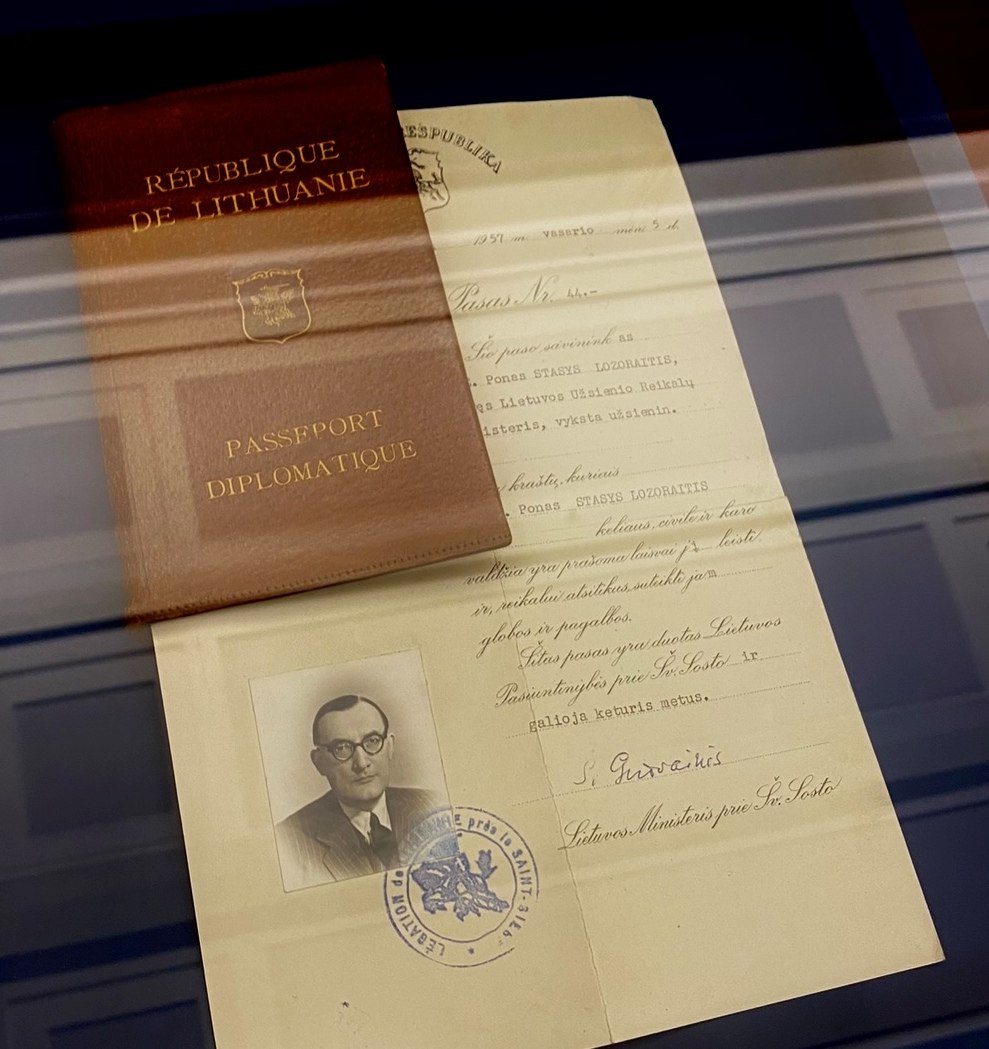JCU Students Participate in History of Lithuanian Diplomacy Event
On November 12, 2024, a delegation of JCU students attended the “Conclusive Ceremony of The Lozoraitis Year for the History of Lithuanian Diplomacy Abroad,” at the Italian Chamber of Deputies’ “Nilde Iotti” library. The first of a dedicated series of events, it was moderated by journalist Giorgio Rutelli. The panel featured JCU’s Professor Federigo Argentieri, director of the Guarini Institute for Public Affairs, Giorgio Mulè, the vice president of the Chamber of Deputies, Daina Lozoraitis, daughter of Lithuanian diplomat Kazys Lozoraitis, and Marguerite de Merode, director of the exhibition at the National Museum of Lithuania.

Professor Argentieri, a close acquaintance of the Lozoraitis brothers, recounted his 1991 interview with Stasys Lozoraitis. The event served as a reminder of sacrifices made by Lithuania’s diplomatic community in exile. Their dedication ensured that Lithuania’s sovereignty was never forgotten, even in the darkest times, serving as a testament to international solidarity in the face of oppression.
The Lozoraitis Family: A Symbol of Lithuanian Resilience
Giorgio Mulè reflected on how U.S. President Woodrow Wilson’s principle of nationality declined after World War II due to the rise of Nazi and Communist ideologies. Lithuania was among the nations that paid the highest price, losing its national sovereignty to the USSR, an issue that echoes in today’s conflict between Ukraine and Russia. He underscored the common values of freedom and democracy that unite Italy and Lithuania. The Lozoraitis family emerged as a symbol of resilience and unwavering commitment to Lithuania’s national identity, which ensured its survival in Europe and abroad. Their work helped preserve Lithuania’s culture and political memory on the international stage.

As proof of the family’s decisive role in Lithuanian history, Daina Lozoraitis shared a personal testimony about her grandfather’s meticulous work in preserving key documents and archives that became essential in keeping the country’s independence and culture alive. As the Chief of Lithuanian Diplomacy in Exile, he was a key figure in maintaining the continuity of Lithuania’s government abroad. She presented crucial documents, including the telegram sent by the Lithuanian government instructing its representative abroad in the event of a national catastrophe, recognizing Minister Lozoraitis as the head of Lithuania’s diplomacy in exile, a status that lasted for 50 years. One of the most significant contributions of Lithuania’s only active institution abroad, coordinated by the Lozoraitis family, was the issuance of the “Lozoraitis Passports,” which helped refugees escape Soviet control and avoid forced repatriations to the USSR.
Marguerite de Merode shared insights into the vital role of women in maintaining Lithuania’s identity in exile. She emphasized how the Lozoraitis women were equally crucial to the mission, ensuring the transmission of the cultural heritage and education across generations.
(Morena Traditi)





